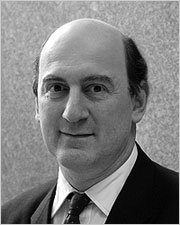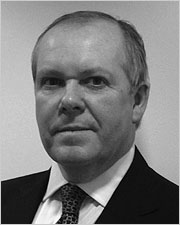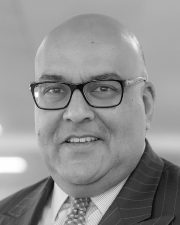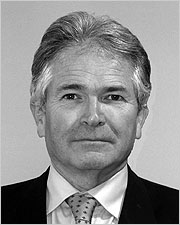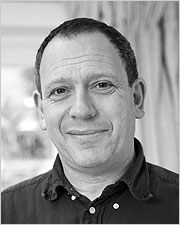By Dr. David Feller, Research Associate – Centre for the History of Science, Technology and Medicine and Wellcome Unit for the History of Medicine, Simon Building, University of Manchester, Manchester, M13 9PL, U.K.
If you have risen in your profession to the point where you have been appointed to testify before a trier-of-fact, or are consider offering yourself for such a position, it is wise to think about your intended audience and consider the ways they define an expert. An expert witness is by legal definition someone who commands scientific, technical, or other specialised knowledge that will help the trier of fact understand the evidence or determine a fact in issue. Such ‘specialised knowledge’, i.e., knowledge outside a lay person’s normal understanding, may be the product of any combination of those factors which on balance render the witness likely to provide useful information to the court. When assembling your expert CV, consider how each of these factors help to qualify you as an expert, and how they also affect your credibility as an witness. Competency and credibility are very different, but both are essential to the task at hand. What appear on their face to be positive credits on your CV may also be subject to negative interpretations which will no doubt arise during your examination.
All credibility, all good conscience, all evidence of truth come only from the senses.”
Friedrich Nietzsche
Let’s say you have a PhD from Oxford in your field, a presumptively high qualification, but you may have obtained your PhD 1974. The degree may be relatively worthless if field has taken great leaps in the intervening years. A good cross-examiner knows how to make hay of such tiny elements. ‘How many courses in [enter recent developments in your field here] did you take during your PhD work? NOT ONE?’ The fact that things have moved on in your field since the early 70s is of no help to you; as a witness you are behind the times. Your PhD itself shows a track record of an ability to learn and develop ideas in your field, but a subsequent exercise of those powers is necessary to make the accreditation relevant. Expert witness qualification is often about ‘what have you done lately’.
The same scrutiny should be focused on your skills and experiences in your field. If your expertise is mainly earned via your skills, you will be questioned about your lack of education. Expertise built on education will be challenged if it is not bolstered with experience. Extraordinary experience earned in assignments requiring little skill will be indicted for lack of ability. Everyone’s CV has holes in it, but careful examination of each of your qualifications will tell you what the strong points and weak points are. You may then see more clearly how each of your qualifications may fill a hole in another and prepare responses to your examiner’s concerns. And not all qualifications are necessary to each opinion your present. For example, experience in a type of complex transaction may be more important than education, especially where there is no formal educational credit to be had.
Publications demonstrate your expertise in a field, but one should consider how an article or book was published, where it was published, and the audience for which it was published. Peer reviewed articles are considered to be the most helpful, as they show acceptance in your specialised community and by implication some consensus in your point of view. That is a positive example of ‘audience’. Publication in journals which include lesser works, lack peer review, or take highly subjective positions with their articles are not as useful. But a publication in a journal relied on in your field, even though it is not peer reviewed, may be a plus because it is considered a source of knowledge by a reliable audience.
Don’t limit your review of your qualifications to those earned outside of the court; your cross-examiner will not do so and neither should you. Is this your first time testifying? Be prepared for an attack on your ‘green’ status. Have you testified a lot, but only supported one position in those disputes? This could raise allegations of bias. Has a case in which you testified been decided against the party for whom you were testifying? ‘Guilt by association’ can also result from almost any of your activities as well. Where your name has appeared on research or other publications, you may be examined about the other authors in that piece. Have you been employed at institutions with a tarnished record?
Because a questioner knows she is dealing with an expert, she is less likely to want to go toe-to-toe with you on the content of your opinion. It is far easier to raise doubt about a witness’s testimony by raising doubts about him or her on the basis of things unrelated to the meat of your testimony.
To be persuasive we must be believable; to be believable we must be credible; credible we must be truthful.”
Edward R. Murrow
Expert testimony is not just about qualifying as an expert. Qualifications by themselves may establish the foundation of competency that leads the determiner of fact to allow you to testify, but your credibility may hinge on how those qualifications are weighted, as well as things not included in your qualifications. A credible expert is a valuable expert, and a busy one. An incredible expert is not called upon to testify nearly as often.
For directory of articles on expert witness services please click here.
Expert Evidence is a professional firm concentrating on the four main areas of dispute resolution; acting as expert witnesses in financial litigation, mediation, arbitration and adjudication. The firm has a civil, criminal and international practice and has advised in many recent cases. Areas of specialisation include banking, lending, regulation, investment, and tax.
Ask a question about expert witness services. We are here to help!
Disclaimer – Please confirm any of the above views with your solicitor. Expert Evidence Limited takes no responsibility or provides any guarantee that the views above are correct for your particular case or jurisdiction.



